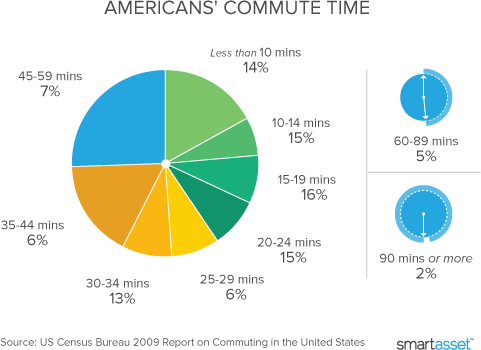Let’s think about all the time we spend commuting. It is part of our daily routine, part of our lifestyle — in other words, it is unavoidable. So what makes best use of our commuting time? What do we prioritize when we think about the time we must spend travelling? Are we in favor of making good use of it? Perhaps it adds time to your favorite activity, such as reading a book. Or perhaps you are more concerned with being home on time, and spending more time with your family or your job, and not with the road.
Whatever your personal concerns regarding this are, the fact remains that we all must factor in these concerns when adjusting to a new job, or a new place to live. The decisions made surrounding this will affect your daily life and routine, and can have a great impact on your happiness and wellbeing.
TRAVEL BY TRAIN/ METRO
Train can be one of the best (stress-free) ways to commute, because you are generally dealing with no concerns regarding traffic. The Metro runs on the exact time it says it will, and in big cities this is constant and frequent. So long as you are within walking distance to the station, you really have not much worry at all. You also have a community of people to engage with, if you so desire. If not, you could just do the following:
COMMUTE TIME: 30 minutes
Full 30 minutes: Audio books are a great idea for the train, especially if you might need to be standing for the duration of your trip and don’t want to have to hold a book up the whole way. Blinkist is a great audio book app to use, otherwise this list of ten apps is also helpful. Podcasts are also a great idea. Your thirty minutes will be up before you know it – you’ll probably be looking forward to the thirty minutes on the way home!
TRAVEL BY CAR
Studies have shown that travelling alone by car can have some detrimental effects on the human psyche. In terms of happiness, long commutes alone can lead to feelings of isolation and helplessness, as it cuts off human interaction and correspondence with local communities. Our health may also be at risk without exercise during this time, leading to weight gain and muscular problems, not to mention time that could better be spent sleeping.
Travelling by car, however, can be the quickest and most direct route. And if we use our time wisely, we can overcome the majority of negative effects. For example:
COMMUTE TIME: 45 minutes.
First 5 minutes: Listen to the news/ radio
Next 40 minutes: Listen to your pick of Podcast/ audio book/ recordings from your children – the world is your oyster when you are alone in your car! But remember while you are travelling/ listening to eat some carrot sticks, drink lots of water, and wriggle your muscles a little while you’re sitting at the stop lights.
TRAVEL BY BUS
Travelling by bus can also be difficult in terms of traffic. Similar to commuting by car, you are at mercy of the traffic, and sometimes can be waiting a long time for the ride you need. For this reason, packing a book is essential. Taking your mind off the journey is a good idea, and generally bus rides can be pleasant, given that you have allowed enough time for your journey so as to feel stress-free. Buses can be less packed than trains and you are much more likely to get a seat. So if you can, strike up a conversation with a fellow traveller. Human interaction can pleasantly surprise us, and it can also be a great way to pass the time. Otherwise, you might try this pattern:
COMMUTE TIME: 60 minutes.
First 15 minutes: Sit back and enjoy your take-away coffee.
Next 35 minutes: Either interact with fellow travellers, or nestle in to a half hour with your book.
Last 10 minutes: Listen to some upbeat music to put you in a good mood for the day ahead. The longer the commute, the harder it is to stay upbeat on a daily basis. So remember to relax and spend the time wisely!













































